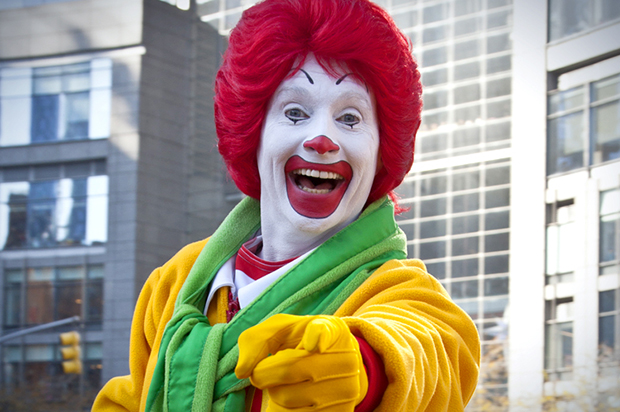San Francisco start-up Momentum Machines boasts a bold “value proposition.” The company plans to “launch the first restaurant chain that profitably sells gourmet hamburgers at fast food prices.” How do they plan to do this? By mechanizing the production process to the point where no line cooks are necessary at all. Details are scarce about the technology but the website promises 360 burgers per hour via a machine that “does everything employees can do except better”:
The labor savings allow a restaurant to spend approximately twice as much on high quality ingredients and the gourmet cooking techniques make the ingredients taste that much better.
Momentum Machines was founded four years ago and aside from receiving the occasional libertarian shout-out — “Meet the robot that’s a minimum wage killer” — the company has mostly been low-profile. But at some point in the not too distant past, the website added a kind of disclaimer that aims to nullify criticism that the company might be destroying jobs.
We want to help the people who may transition to a new job as a result of our technology the best way we know how: education.
Our goal is to offer discounted technical training to any former line cook of a restaurant that uses our device. We will certainly need more engineers to design new devices and technicians to service a growing line of automated restaurant solutions. These are the minds that can do this job. If you are a vocational training institution, please contact us here.
The issue of machines and job displacement has been around for centuries and economists generally accept that technology like ours actually causes an increase in employment. The three factors that contribute to this are 1. the company that makes the robots must hire new employees, 2. the restaurant that uses our robots can expand their frontiers of production which requires hiring more people, and 3. the general public saves money on the reduced cost of our burgers. This saved money can then be spent on the rest of the economy. We take these issues very seriously so please feel free to tell us how we can help with this transition.
It is encouraging to hear optimism expressed about the possibility of training displaced line cooks to become robot design engineers, although I expect the educational resources necessary to replace entry-level minimum wage jobs with higher-on-the-food-chain, yet-to-be-automated-away engineering design jobs will be considerably greater than any single San Francisco start-up can muster.
But as for the confidence that “technology like ours actually causes an increase in employment”? Certainly that’s been true for a long time, but as the sophistication and pace of technological change continue to accelerate, at least a few economists are now beginning to wonder whether old axioms still hold true. One thing that’s certainly not in doubt — disrupting the fast food industry and erasing countless jobs will provide a direct test of this thesis!

